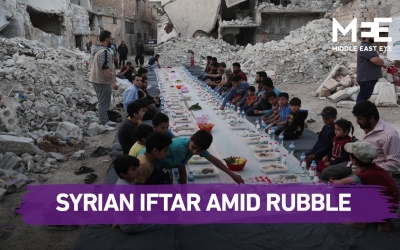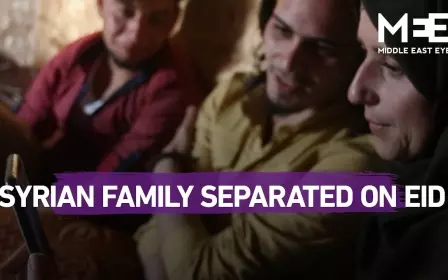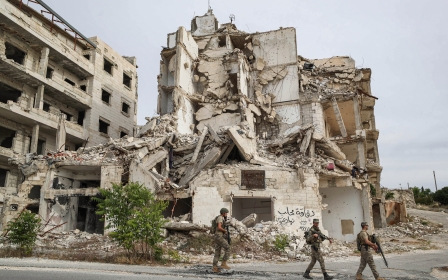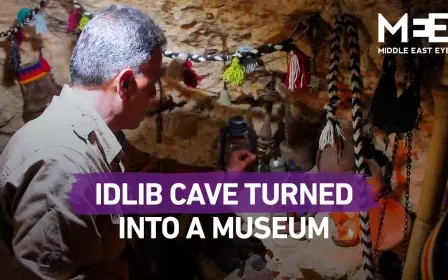Syria: Inter-rebel fighting in Afrin kills a child
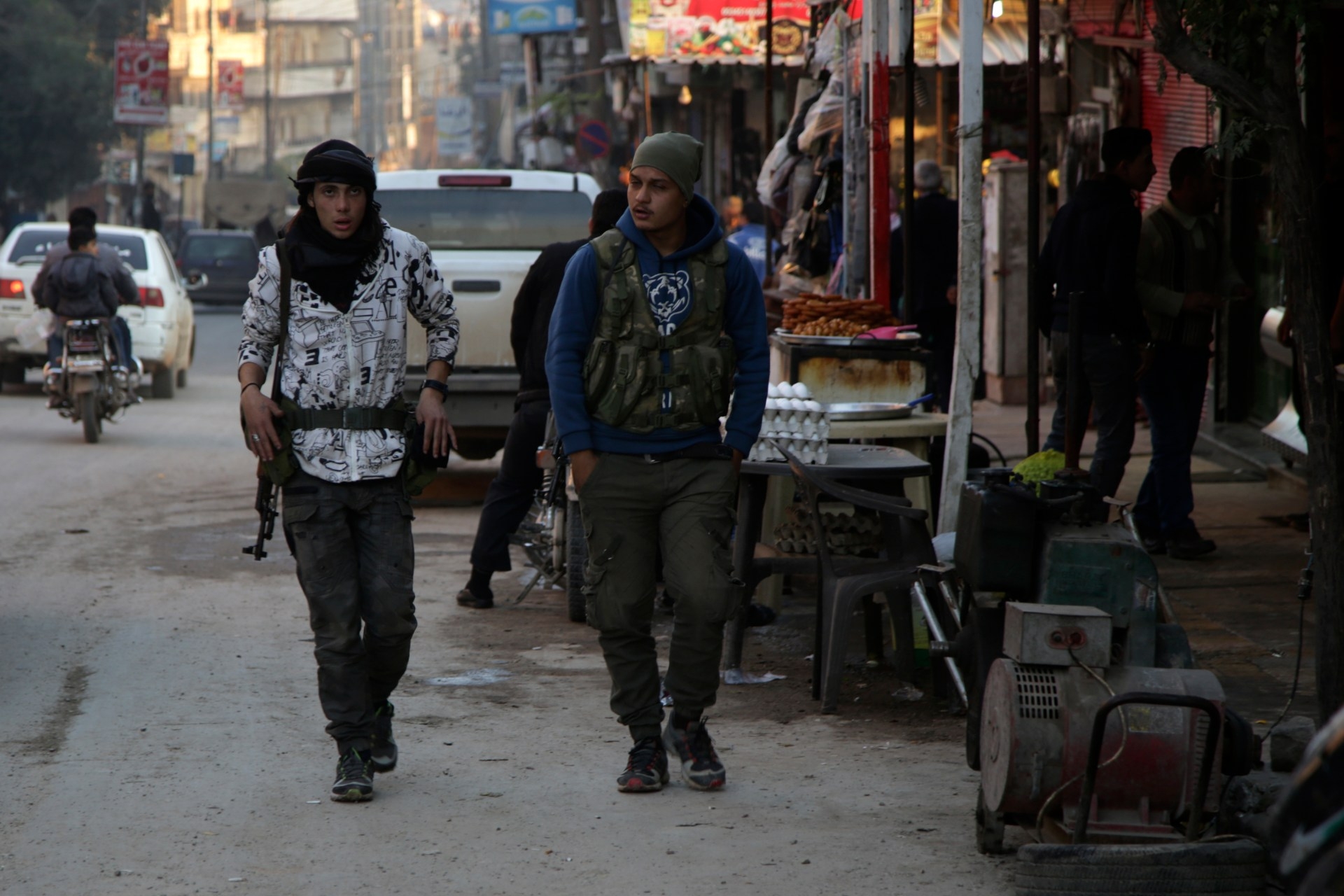
Clashes between rebel groups in Syria’s Afrin on Thursday have left at least two dead, including a child, and undermined security in the Turkish-held northwestern city.
An Afrin medical source told Middle East Eye that another six people had been wounded. The UK-based Syrian Observatory for Human Rights activist group, which relies on various sources on the ground, meanwhile said seven people had been killed in the fighting.
The firefight pitted rebels from the Hamza Division against their erstwhile allies belonging to the Jaish al-Islam and Ahrar al-Sham factions, who had been displaced to the area after retreating from Eastern Ghouta in 2018.
All the fighters involved are part of the Turkey-backed Syrian National Army rebel umbrella group.
After long clashes, the Ghouta fighters took control of the Hamza Division’s Afrin headquarters and torched it.
New MEE newsletter: Jerusalem Dispatch
Sign up to get the latest insights and analysis on Israel-Palestine, alongside Turkey Unpacked and other MEE newsletters
Once the clash ended, they roamed the streets, shooting randomly and chanting for Eastern Ghouta, the area they lost to the Syrian government after years of conflict.
The clashes started, according to activists, after members of the Hamza Division threw a grenade at a food store run by a displaced man from the Ghouta who refused to put items on a tab. When the Ghouta fighters came to defend the shopkeeper, events escalated.
Activists named the slain child as Muath Hussein al-Abdullah, from the Idlib province village of Khayara, east of Maarat al-Numan. He was eating at a table with his family when he was hit by a stray bullet, activists said.
On Friday, angry Syrians from the Ghouta massed outside the Turkish authorities’ headquarters in the city, protesting against the conditions they live under.
In an official statement, the Hamza Division said it would open an official investigation, hand over those involved to the local military police and refer them to the judiciary to receive their punishment.
Erstwhile allies
The Hamza Division consists of displaced fighters, mostly from the city of Aleppo and its countryside. The group was a small brigade established in 2013 south of Hassakeh, which then merged in 2015 with four other brigades.
From then it was trained and equipped by the United States and Turkey as part of the Syrian Train and Equip Program to fight the Islamic State (IS) group in northwestern Syria.
It has participated in all Turkish military operations in Syria, and was one of the battalions that expelled the Kurdish People's Protection Units (YPG) militia from Afrin in 2018.
Soon after Afrin was seized, fighters from the Ghouta began arriving, some led by the Al-Rahman Legion, others by Jaysh al-Islam.
The two Ghouta factions have been confrontational since 2016, and occasional clashes between them in the Damascus countryside have seen hundreds killed and wounded, though their leaders have now reconciled.
With rebel factions tensely living alongside one another - often quarrelling over loot or homes left by the Kurdish population expelled in the Turkish-led 2018 assault - Afrin’s security has been precarious.
Meanwhile, the city has been rocked by occasional Kurdish militant bomb attacks.
In an effort to maintain stability, Afrin is divided administratively into sectors supervised by each rebel faction, many of which tax the local population.
A military police force drawn from all rebel groups was also established, but it is largely ineffective, with its commander once finding himself besieged alongside his forces during a previous flare-up.
Turkish-backed civilian police have also been deployed to the city, but so far its role has been limited to managing some checkpoints and resolving conflicts between civilians. Its commander has been detained for a month over corruption charges.
Weapons are widespread in the city. Many civilians and rebels retired from fighting carry arms to defend themselves, and there are many shops selling all kinds of weapons. The sound of gunfire is common.
Civilian anxiety
“The indiscriminate weapons must be withdrawn, and committees assigned to monitor the sales of arms stores,” suggested Maysa al-Hamoud, a displaced activist from the city of Aleppo, who lives in Afrin.
"The city must be handed over to a civilian authority, and the civilian and military police must take their role effectively," Hamoud told MEE.
"We live in real terror during the clashes, which leads to chronic anxiety and psychological pressure."
'I have a two-year-old little boy. I stand helpless in front of him when he hides under the bed scared of the sound of gunfire'
- Ameer Hurputlu, activist
Ameer Hurputlu, an activist displaced from Eastern Ghouta, has moved from his home on the main street in central Afrin and rented another in the backstreets, fearing stray bullets.
“During every engagement, random checkpoints spread and tension prevails for days, leading to civilians’ work being disrupted,” Hurputlu told MEE.
"I have a two-year-old little boy. I stand helpless in front of him when he hides under the bed scared of the sound of gunfire," he added.
“Living in a small space safely has become everyone's dream.”
Middle East Eye delivers independent and unrivalled coverage and analysis of the Middle East, North Africa and beyond. To learn more about republishing this content and the associated fees, please fill out this form. More about MEE can be found here.


